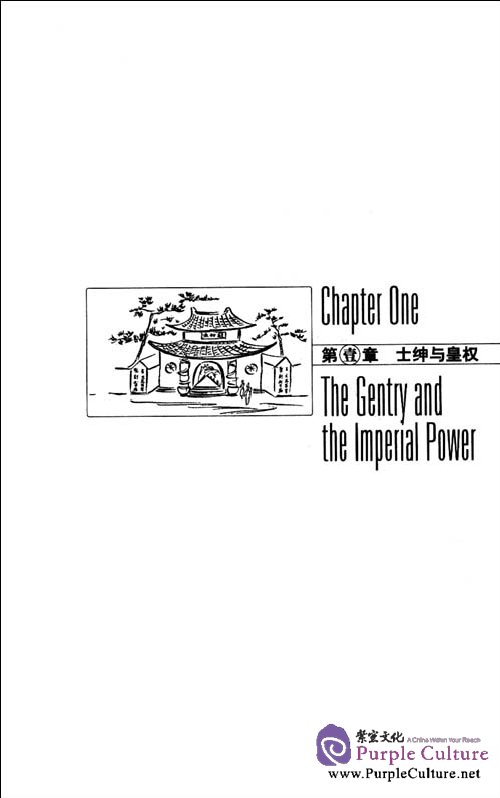Details
Edited upon Fei's dictation in English, these succinct chapters are a general description of the Chinese rural area and overall society and an extension of Fei's early fieldwork researches, which are key to the understanding of the "hyper-stability" of the traditional Chinese society and the upheaval of the modern Chinese society.
About the Author
Fei Hsiao-tung (1910-2005), professor of sociology and anthropology and social activist. His works were instrumental in laying a solid foundation for the development of sociological and anthropological studies in China, as well as in introducing social and cultural phenomena of China to the international community.
Sample Pages Preview

The conception of tao-t'ung developed from a set of social facts,of which one important element was that a class of socially importantpeople had lost their political power. Confucian ideas, as formulatedand organized into the Confucian system, following the concentrationof monarchical power and the disintegration of the feudal system,underwent, it is true, an understandable process of change. And thewritings we now have about Confucian ideas have been much modifiedby later scholars. I should like, however, to start here with the basicConfucian ideas and to try to trace their development to a later period. But, in discussing the influence of Confucius on the social history ofChina, we are not concerned with the question of whether the idea oftao-t'ung was that of Confucius himself but rather with the fact that thisconcept was selected and elaborated in his name by later scholars.
It appears to me that the development of the idea of tao-t'ung tookplace in Chinese traditional society because there had appeared a new typeof person, the scholar-intellectual, one excluded from political authoritybut still possessing social prestige. Since he did not have political power, such a man could not decide political issues. Yet he might, through making known his opinions and formulating his principles, exercise a real influence. Such men did not try to control political power in their own interest but endeavored rather to put forward a set of ethical principles which should restrict the force of political power. The system of tao-t'ung which they developed came to be accepted by the gentry as the norm for their activity in politics. Eventually it came to serve the gentry not only as an ethical system but also as a protection for economic interests.
